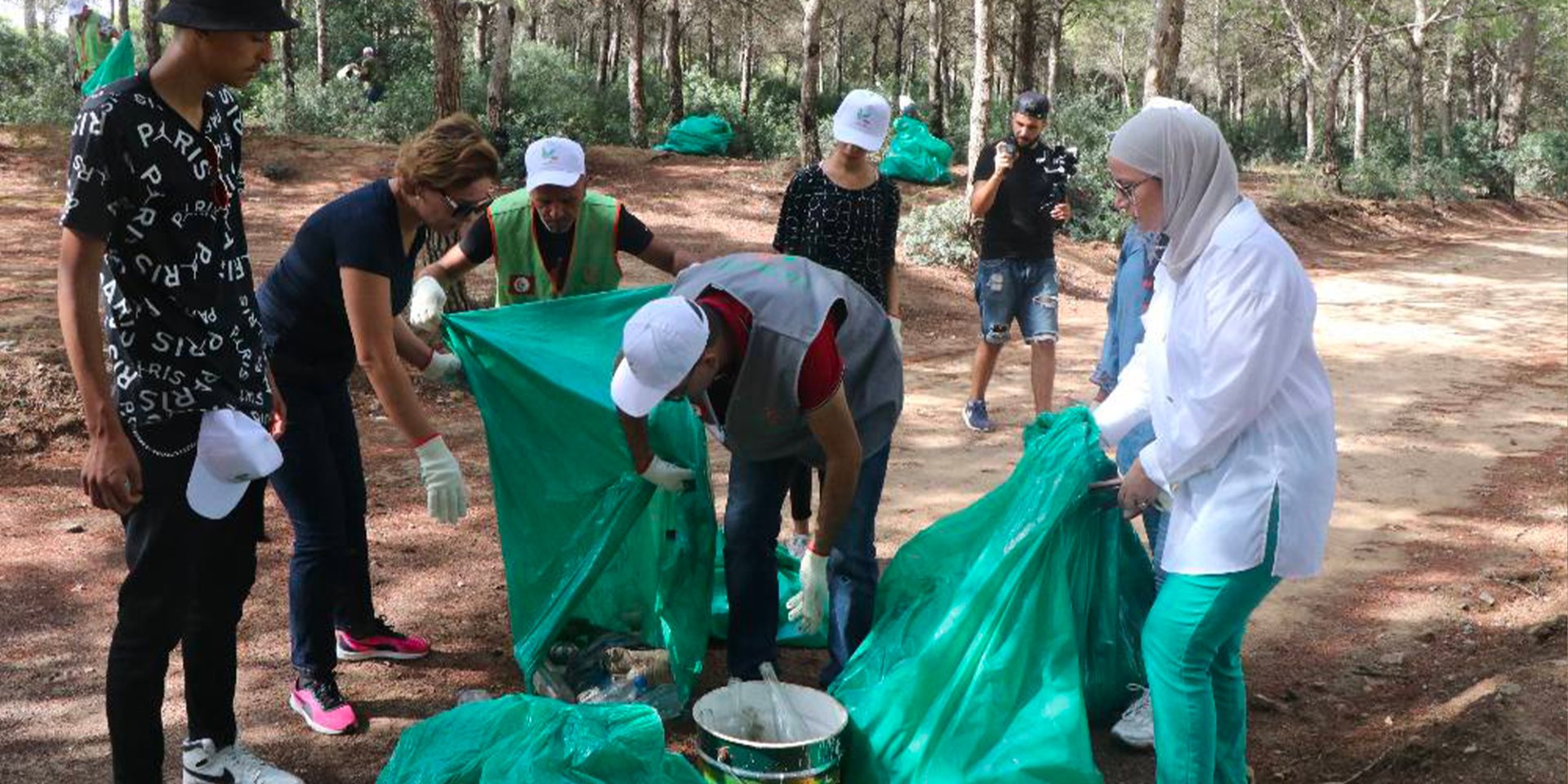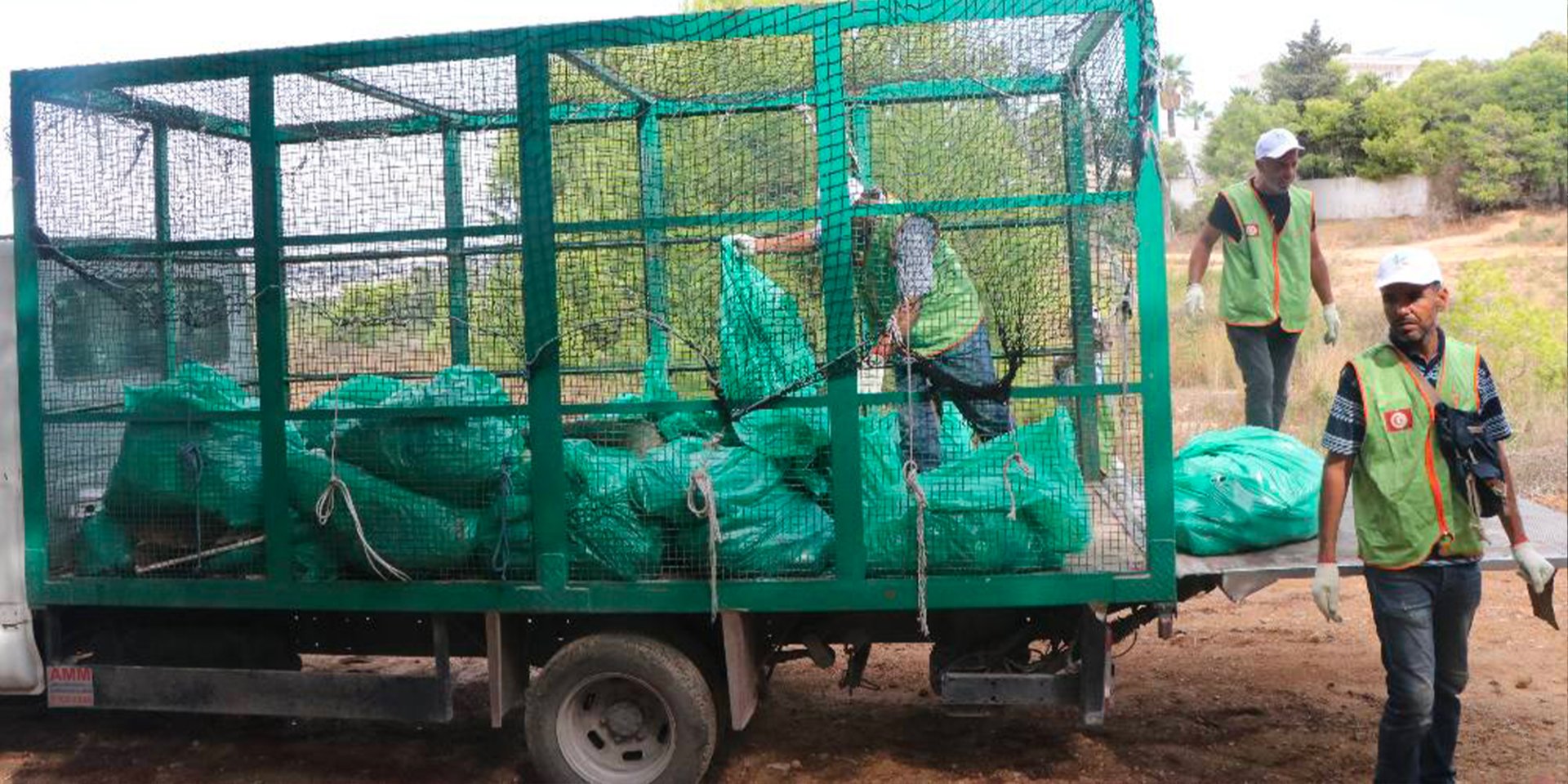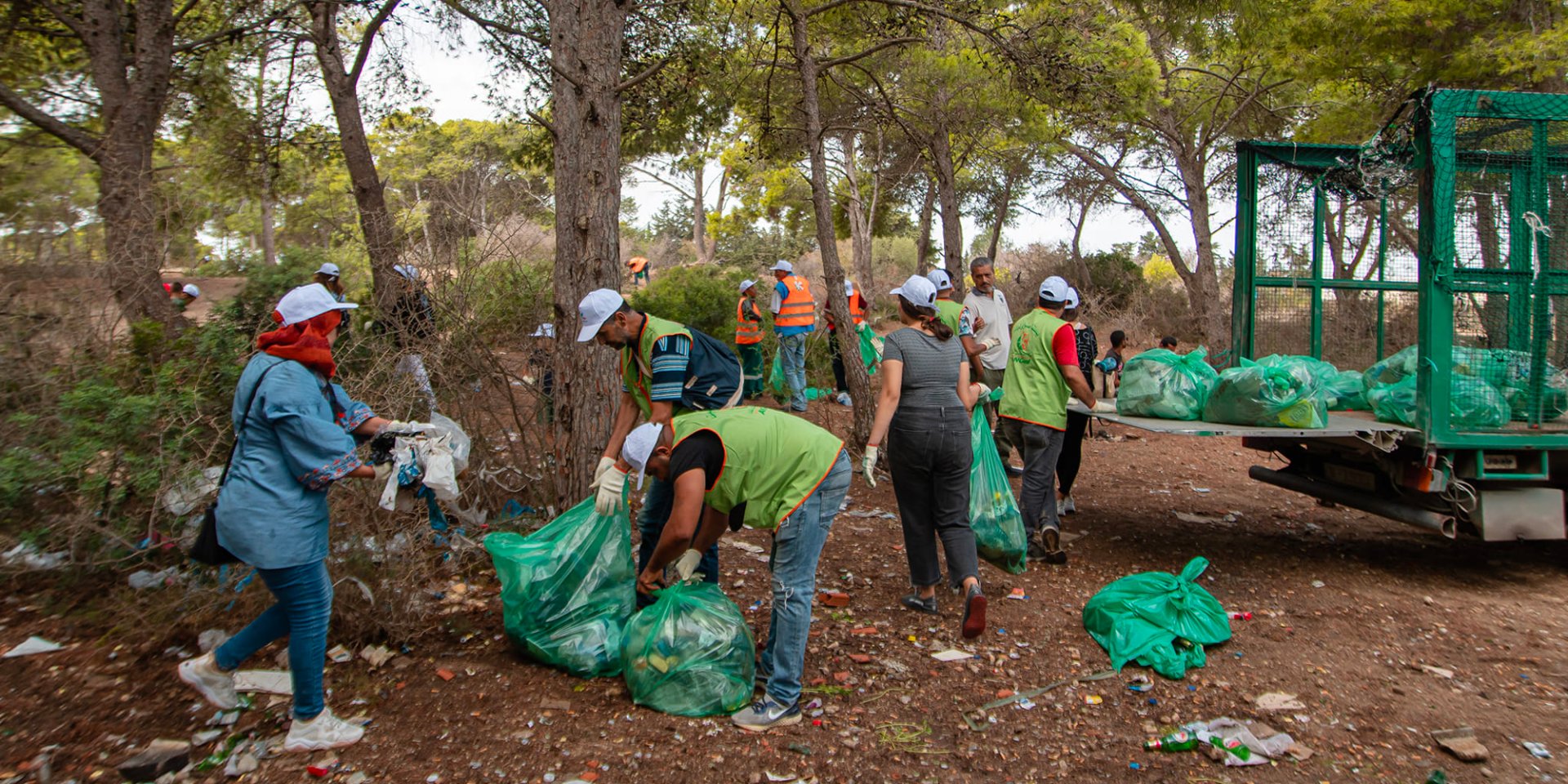Cleanup-Month: environmental protection relegated To citizens
The Tunisian Ministry of the Environment describes Cleanup-Month as a “grassroots awareness-raising initiative that aims to diffuse a culture of environmentalism, and an engaging approach to promoting a clean and beautiful Tunisia.” Critics blame the Ministry for focusing on an initiative that results in “a handful of individuals cleaning up plastic” instead of dealing with larger, long-term environmental issues like water pollution and illegal garbage dumps.
By Manel Derbali Translation Vanessa Szakal
“It’s a sign of the Ministry’s shortcoming. The minister travels around with her staff and meets with governors, but doesn’t include the communes. The result? A handful of individuals cleaning up plastic,” quips the president of the National Federation of Tunisian Communes (FNCT).
“The initiative aims to instill a culture of environmentalism. A clean environment is a daily effort and lifelong commitment,” retorts a ministry official.
Household garbage collection is an ongoing dilemma in Tunisia. Heaps of trash, the contents of torn-open plastic bags spilled out onto sidewalks are commonplace in neighborhoods across the capital. Even Bardo, the historic area where (a currently dissolved) parliament traditionally convenes, is no exception to the litter-strewn scenery.
This article was originally published on 12 October 2022 by Nawaat. Nawaat is a pioneer of alternative journalism in Tunisia and the region and provides Tunisia-centred news and analysis. Created in 2004, Nawaat established itself as trusted provider of coverage specialising in topical news, particularly focusing on democracy, transparency, accountability, justice, civil liberties and rights.
Against this backdrop, the Ministry of the Environment was keen to introduce “Cleanup-Month”, a waste collection campaign that was held between 14 August and 4 September.
On its digital platform, cleanup-month.tn, the Ministry describes its operation as “a grassroots awareness-raising initiative that aims to diffuse a culture of environmentalism, and an engaging approach to promoting a clean and beautiful Tunisia.” Registration is open to different categories of participants, including individuals, teams, associations, public institutions and businesses who are able to choose their collection area online. The Ministry’s regional offices and different bodies “provide participants with the necessary logistics”, which are outlined on the platform. Between 14 August and 4 September, “545 participants, including individuals and associations, took part in the operation, and 237 actions were recorded across the country,” Mahdi Abdelli, the Ministry’s communications officer, is pleased to share with Nawaat.
Conflict of authority?
“Who planned this event? To what end? Is it just to collect a few plastic bottles? What is being done about the garbage dumps in Agareb and Borj Chakir, about the beaches polluted by the ONAS’ waste?” asks Adnen Bouassida, president of the National Federation of Tunisian Communes (FNCT) and mayor of the Raoued commune. For Bouassida, Cleanup-Month falls short of expectations, and fits into the category of “short-term” actions. “It’s a sign of the Ministry’s shortcoming! The Ministry of the Environment is a ministry of meetings and events. What does it plan to do about unregulated garbage dumps, for instance? The minister travels around with her staff and meets with governors, and doesn’t include the communes. The result? A handful of individuals cleaning up plastic,” Bouassida observes with sarcasm.

Mahdi Abdelli for his part comments that environmental protection is a “shared responsibility”: “Let’s stop pointing fingers and work together.” He says that the Ministry’s waste collection operation “is an initiative that aims to instill a culture of environmentalism, and not a short-lived campaign. A clean environment is a daily effort and lifelong committment.”
According to Abdelli, local collectivities across the country lauded the garbage collection actions carried out within the scope of the Ministry’s campaign and in collaboration with regional authorities. The objective was to remove litter such as plastic bags, disposable cups and tissue paper. Nonetheless, Bouassida regards the initiative as having been orchestrated to coincide with the TICAD 8 which took place in Tunis over 27-28 August: “It wasn’t until this event that city entrances were cleaned up,” he points out.
Institutional shortcomings
Article 243 of the Local Collectivities Code (CCL) holds that municipal councils are responsible for city beautification, eliminating of sources of pollution on public roads and safeguarding environmental protection and sanitation. As per Article 210 of the same code, each municipal council must include a permanent commission in charge of sanitation, health and the environment. “Our mission is to collect waste and transfer it to regulated garbage dumps,” says Bouassida of his work within the commune.

At the other end, the Ministry Environment is primarily responsible for developing public environmental policy. Six instituations operate under this ministry’s jurisdiction, including the National Waste Management Agency (ANGED), the National Sanitation Utility (ONAS), the National Agency for Environmental Protection (ANPE) and the Tunis International Center for Environmental Technologies (CITET). In spite of the legal and institutional frameworks in place, however, Tunisia’s alarming garbage collection problem persists.

In its June 2022 report entitled “Environmental Rights: Between violations and daily struggles,” the Tunisian Forum for Economic and Social Rights (FTDES) notes that “the way in which institutions have handled environmental issues and the waste problem remains insufficient, due to the lack of practical strategies that take into account human rights, in particular citizens’ right to a clean environment.” According to the report, Tunisia is facing an environmental and administrative crisis that is a consequence of “the lack of planning and administrative structures’ incapacity to address the waste management issue.”
In this light, citizens have been called upon to intervene where the government is failing to take action, especially in matters of garbage collection. Indeed, by all outward appearances, it is not only Tunisia’s garbage dumps that have taken to to operating in anarchy.
IMS’ reader on environment in the MENA region
The pieces published here tell the story of the way the environment has been understood and questioned by our partners in the MENA region.


